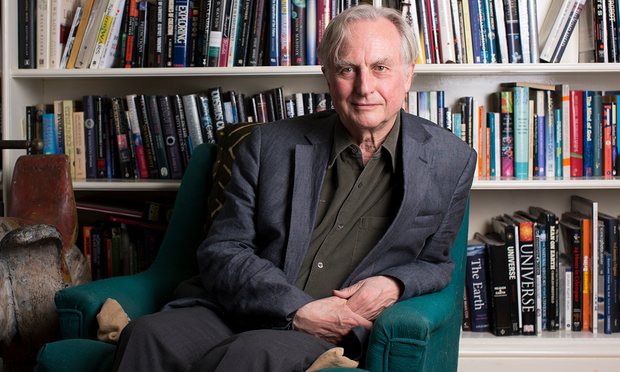Many people find it strange when an Orthodox theologian says that Richard Dawkins is one of his favourite authors. I am, of course, that Orthodox theologian. Some may ask – what does a believer have to do with an atheist? The stricter ones may even rebuke me with the words of St. Paul: “Do not be yoked together with unbelievers; for what do righteousness and wickedness have in common? Or what fellowship can light have with darkness? What harmony is there between Christ and Belial? Or what does a believer have in common with an unbeliever?” (2 Cor. 6:14-15). Truly, they have nothing in common. So, how then has Dawkins endeared himself to me? It is through the inspiration he has given me to write, as few others have done. Many of the texts in “The Orthodox Missionary” I owe to the inspiration sparked by Richard Dawkins’ books. Yes, we are on diametrically opposite sides – a believer and an unbeliever, a theist and an atheist. However, his atheism, his unbelief has seriously galvanised the written expression of my theism, of my faith. Have not the ancient heretical writers played a similar role in stimulating the written expression of patristic theology? Theology, of course, requires inspiration from above – the Divine illumination of the Holy Spirit. But it also requires provocation – and that provocation is in itself a form of inspiration, or at least it serves as a trigger for the inspiration received from above to radiate outwards, to become active and visible. This is precisely what Richard Dawkins represents for me, or rather for my literary expression – a provocation which serves as an inspiration. Thanks to him, I have much to say in response to contemporary atheism.
The title of this article is, of course, jovial – a well-meaning irony. Those who have read Richard Dawkins, will notice that it is an ironic allusion to his famous book “The God Delusion”. The title has been translated into Serbian as “Zabluda o Bogu” (“The Delusion about God”), though I think a more appropriate translation would be “Zabluda Bog” (“Delusion God”) or “Zabluda zvana Bog” (“The Delusion called God”). Thus, this article of mine, “Dawkins Delusion” is not about the delusion concerning Dawkins, but rather Dawkins himself, with his views as a delusion – “The Delusion (called) Dawkins”. In a more jovial and free translation, we could call it – “Dawkins the Misconceiver”.
I have a lot to share with the followers of my blog about Dawkins’ “delusionology” – many topics where I think he is light-years away from grasping the facts, the true meaning of concepts, their points… His book “The God Delusion” begins with a completely false analogy. Dawkins writes, or rather quotes Douglas Adams: “Isn’t it enough to be able to see that a garden is beautiful, without having to believe that there are fairies at the bottom of it too.”
With this, Dawkins wanted to strike at the very heart of the “delusion” from the outset of his book, and that is that beauty and the order of nature make the belief in the existence of an Organiser – and a Creator – sensible and legitimate. What a false analogy! The fairies have absolutely nothing to do with the existence of a garden. A garden certainly does not require the belief in the existence of fairies. But a beautifully arranged garden can certainly point to the existence of a skilled and diligent gardener. Therefore, it is the analogy of the gardener, not the fairies, that is required here. A gardener analogy, dear Richard, a gardener analogy, and not the analogy of fairies and elves!
The gardener, however, is not the main theme in this article. The main theme is Dawkins’ narrative about Albert Einstein, in the context of his intent to exclude, or at least significantly reduce the presence of faith in God among scientists, especially with regards to the greatest and most gifted ones. In his book, Dawkins has consistently downplayed Einstein’s belief in God (and his religiosity), stating that Einstein was a pantheist, and pantheism is, according to Dawkins, just “tarted-up atheism”:
“Pantheism is tarted-up atheism, and deism is watered-down theism. We can reasonably assume that the famous Einsteinisms, such as ‘God is insightful, but he is not malicious’, or ‘God does not play dice’… are pantheistic, not deistic, and certainly not theistic.”
When Richard Dawkins speaks of theism, he is referring to a belief in a biblical God. That is why his atheism is primarily a negation of a biblical God. Dawkins then quotes Einstein’s definition of religiosity:
“To sense that behind everything that we can experience lies something which the mind cannot fathom, whose beauty and majesty can reach us only indirectly, like a faint reflection – that is religiosity”. To which Dawkins adds: “In that sense, I am indeed religious.”
For Dawkins, these are at best pantheistic views, and certainly not theistic (according to the above-mentioned Dawkins’ understanding of theism). When I first read this Einstein’s statement, it resembled to me the description of a transcendent, unknowable, biblical God. Einstein, although a Jew who was raised in a secular family was, nevertheless, not unfamiliar with the Bible. Finally, when reading Michio Kaku’s brilliant book “Einstein’s Cosmos”, I found a quote by Einstein himself, which goes as follows:
“I am not an atheist, but I would not call myself a pantheist, either. All of us resemble a small child entering a huge library, filled with books in different languages. The child knows that someone must have written the books, but does not know how. It does not understand the languages in which they were written. The child vaguely senses the existence of a mysterious order which governs the book arrangement, but does not know what it is. That, to me, is an attitude that even the most intelligent people have towards God. Our limited minds are incapable of comprehending the mysterious force which rules the Universe. I am fascinated by the pantheism of Spinoza, but I admire his contribution to modern thought even more, since he is the first philosopher to see the body and the soul as a whole, and not as two separate entities.”
Albert Einstein, by his own admission, was neither an atheist, nor a pantheist (Dawkins’ “disguised atheist”). At the very least, he was a deist. What is certain is that Dawkins’ narrative on Einstein’s religiosity as pantheism or “disguised atheism” is obviously a false narrative, a Dawkins Delusion.
Deacon Dr Aleksandar Milojkov
The photograph was sourced from the website livelib.ru.





